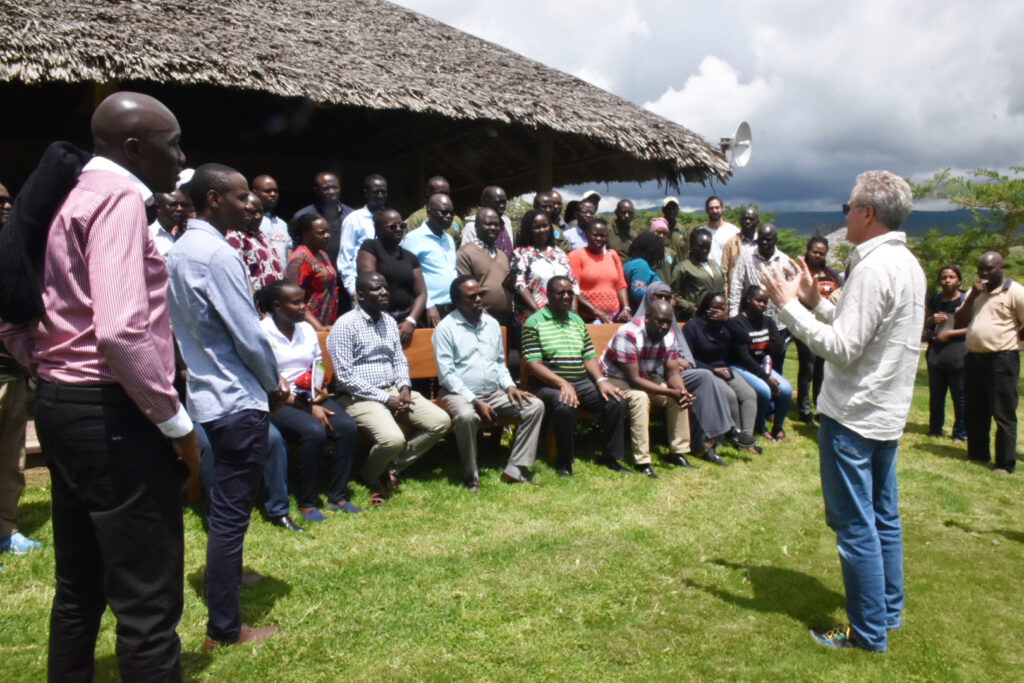
BACKGROUND
Environmental and social sustainability, including climate change resilience, is fundamental to the achievement of development outcomes and must be systematically mainstreamed into development programs. Environmental and social screening and assessment processes for projects have now become standard practice in development cooperation and are usually required by national regulatory frameworks and multilateral and bilateral donors. There is therefore need to strengthen environmental and social sustainability, including climate resilience. Potential adverse impacts and risks need to be avoided or minimized, and where possible mitigated. Governments need to demonstrate to Development Partners and stakeholders that we have the appropriate safeguard measures in place for managing donor funded projects.
Environmental safeguards training in Africa is crucial for preventing unmerited harm to communities and the environment during development processes. These policies are essential tools that support risk assessment during the initial stages of project identification and design, enabling us to evaluate the positive and negative impacts of any development intervention. During project implementation, safeguards ensure effective risk management and enhance constructive influence. Many countries are adopting safeguards through various investment planning, policies, and regulations aimed at achieving sustainable development.
Objectives of the training
By the end of the training participants should be able to;
- Enhance the environmental and social sustainability of a proposed project by analyzing the environmental and social benefits and costs of the project
- Identify and manage environmental social risks that could be associated with a proposed project by screening the possible environmental and social costs of an intervention
- Apply national and donor environmental and social safeguard policies and standards to enhance sustainability and good outcomes from projects
- Review of safeguard documents and other project documents to ensure that environmental issues have been adequately addressed and that the project is in compliance with the Safeguard Policies, particularly those on Environmental Assessment
- Identify key environmental issues during implementation, as well as in strengthening implementation support of corporate risk projects
- Ensuring that contractors are fully acquainted with international environmental management practices and monitoring each project components to ensure compliance with the environmental safeguards regulation.
What you will learn
Upon successfully completing this intensive Environmental and Social Safeguards Training, participants will gain a comprehensive understanding of:
- Environmental Safeguards’ Role: The significance of environmental safeguards in enhancing investment performance.
- Assessment Requirements: Procedures and requirements for environmental and social assessments from major international organizations and donors for development projects.
- Stakeholder Roles: The roles of different stakeholders in implementing environmental and social mitigation measures.
- Best Practices and Monitoring: Safeguards best practices, effectiveness monitoring, and reporting procedures to ensure sustainable development and compliance with international standards.
Duration & Program
The workshop will be held in 14 days inclusive of field work. The training will be held in (TBC). The venue will be at the (TBC) .
Target Participants
This course is designed for Project Managers, Environmental and Social Safeguard Specialists, Government Officials, NGO Representatives, and other professionals involved in planning, designing and managing donors.
Training Modules
| No | Module | Details | |
|
1.
|
Understanding Environmental Safeguards |
|
|
| 2. | Understanding Social Safeguards |
|
|
| 3. | Overview of Major International Frameworks |
|
|
| 4. | Environmental Safeguards |
|
|
| 5. | Social Safeguards |
|
|
| 6. | Integration and Implementation |
|
|
| 7. | Monitoring, Evaluation, and Compliance |
|
|
| 8. | Case Study: | Field Visit | |
Training Style
The modules will be taught through power point presentations, lectures and will include a case study/field visit, breakout sessions, and other interactive discussion components.
The course will also include a few guest speakers, both in person and via zoom and other online learning platforms for overseas speakers. This provides useful real-world insights alongside the more theoretical aspects of the course.
The teaching faculty shall consist of experienced decision makers, as well as practitioners and representatives from established educational and research institutions active around climate change, engineering and international development. Throughout the course theoretical presentation of concepts will be moderated and more group discussions and plenary engagements will be optimized. Power point presentations will be made by facilitators and resource persons, to highlight key concepts before embarking on group work.
Course Fee
The entire course will be availed at a cost of USD 3000. The training fee covers tuition fees, training materials, lunch, training venue, field trip and certificate.
9. General Notes
- Training manuals and additional reference materials are provided to the participants.
- Upon successful completion of this course, participants will be issued with a certificate.
- We can also do this as tailor-made course to meet organization-wide needs. Contact us to find out more: info@ecasiafrica.org.
- Payment should be sent to our bank account before start of training and proof of payment sent to: info@ecasiafrica.org.
About ECAS Institute
The ECAS Institute designs and delivers independent and targeted training, research, and consulting services. Our work focusses on climate change and resilience building, carbon markets, renewable energy, nature-based solution, biodiversity conservation, agriculture and food systems, We are located in Nairobi Kenya and work across the African region. We have implemented training and research assignments in Kenya, Tanzania, Uganda, South Sudan, Somalia, Malawi, Rwanda, Congo, and South Africa. Globally, we have supported our partners from the UK, Denmark, Italy, Sweden, Germany, and USA.

